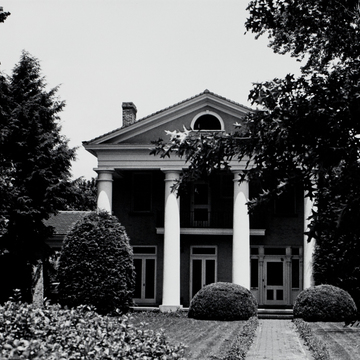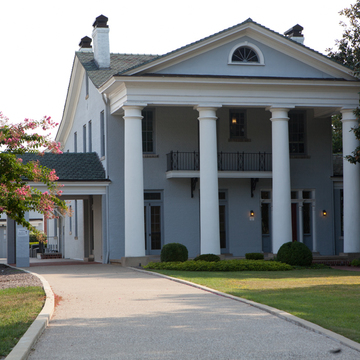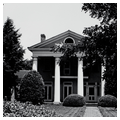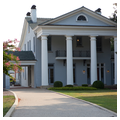The most architecturally ambitious of the three remaining antebellum houses on Kanawha Boulevard, this handsome, temple-fronted brick house was constructed by Charleston's master builder, Norris Whitteker. The house, very Jeffersonian in feeling, recalls pavilions at the University of Virginia. A giant-order Tuscan portico shelters a three-bay facade and supports a full entablature and pediment. The temple front cleverly disguises the side-hall plan, with an off-center entrance located in the right-hand bay. The green-tiled roof, side wings, and small balcony under the portico are products of a renovation (c. 1922).
Owner Henry Devol MacFarland, a mayor of Charleston, also served in the Virginia House of Delegates. Federal soldiers used the house as a military hospital during the Civil War. In 1997








